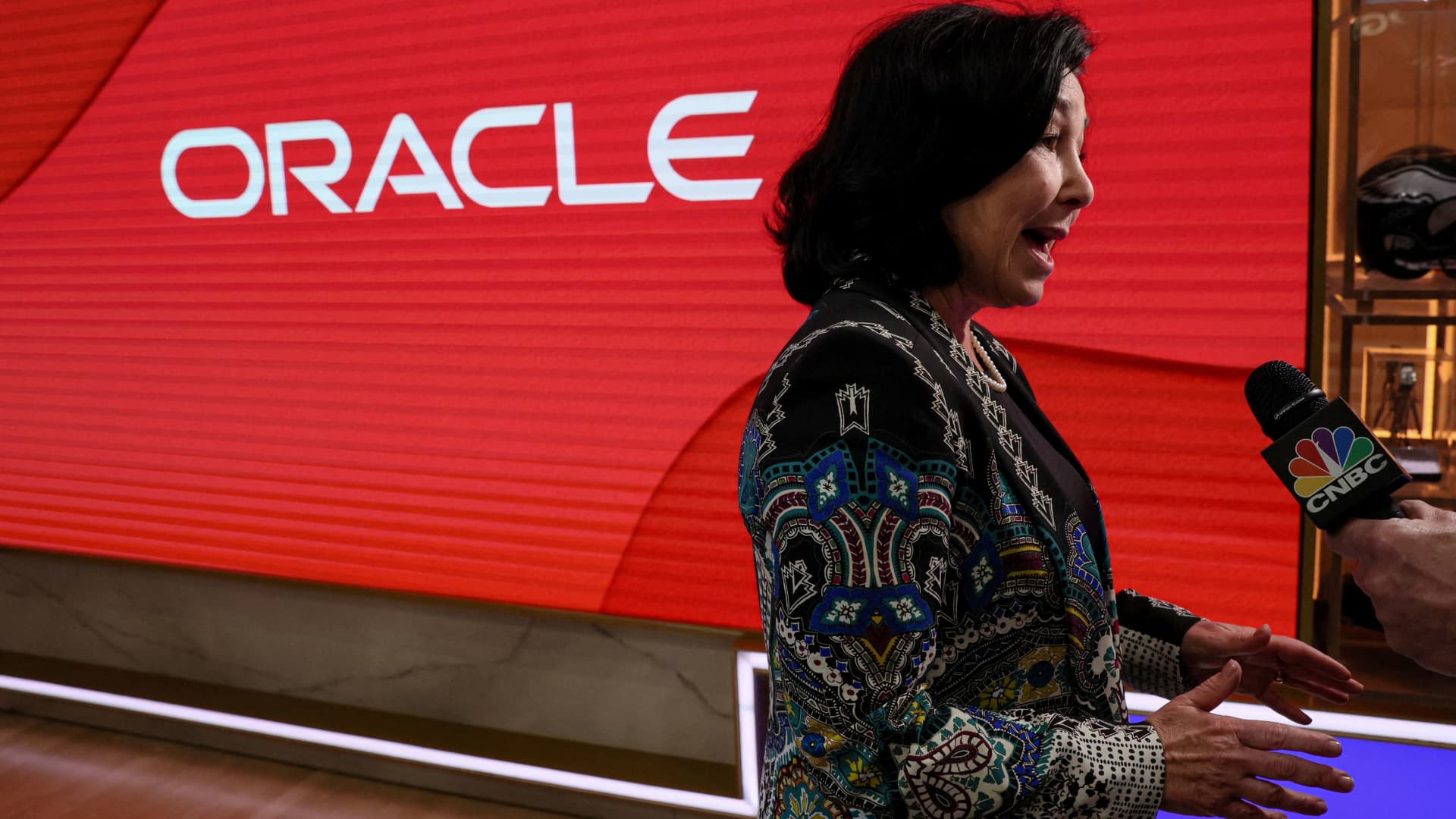
Safra Catz, CEO of Oracle Corporation, rings the opening bell at the New York Stock Exchange, July 12, 2023.
Brendan Mcdermid | Reuters
Oracle stock spiked more than 12% during intraday trading on Tuesday and is on pace for a record close, a day after the company reported fiscal third-quarter earnings that beat analysts’ expectations.
Shares were trading at more than $127 midday on Tuesday, above a previous closing high of $126.71 set on Sept. 11, 2023. They’re also on pace for the biggest gain since Dec. 10, 2021, when Oracle stock closed up 15.6%.
Oracle reported adjusted earnings per share of $1.41, exceeding the $1.38 per share that analysts were expecting, according to LSEG, formerly known as Refinitiv. Revenue of $13.28 billion came up slightly short of the $13.3 billion estimated by analysts.
The company’s cloud services and license support segment, its largest business, saw a 12% sales increase to $9.96 billion, eclipsing the $9.94 billion expected by analysts, according to StreetAccount.
Deutsche Bank lifted its price target on Oracle shares to $150 from $135, noting CEO Safra Catz reiterated fiscal 2026 guidance and strong cloud infrastructure results.
The analysts, maintaining a buy rating on Oracle stock, wrote in a Tuesday note that Oracle’s cloud infrastructure “is driving the equity narrative and for which we are more confident than ever in the demand picture.”
UBS analysts hiked their price target on shares of Oracle to $150 from $130 and reiterated a buy rating on the stock on Tuesday, noting they are “encouraged by the top-line turnaround, OCI growth, AI backlog numbers and by the prospect that the big core database business might benefit in 2024/2025 from an AI-driven cloud migration lift.”
Analysts at Bernstein Research, who have the equivalent of a buy rating on Oracle stock, bumped up their price target to $159 from $147. They cited management comments about supply continuing to outstrip demand and wrote on Tuesday that the results “dispelled some of the growth concerns that had crept up over the past two quarters.”
— CNBC’s Kif Leswing and Jordan Novet contributed to this report.
